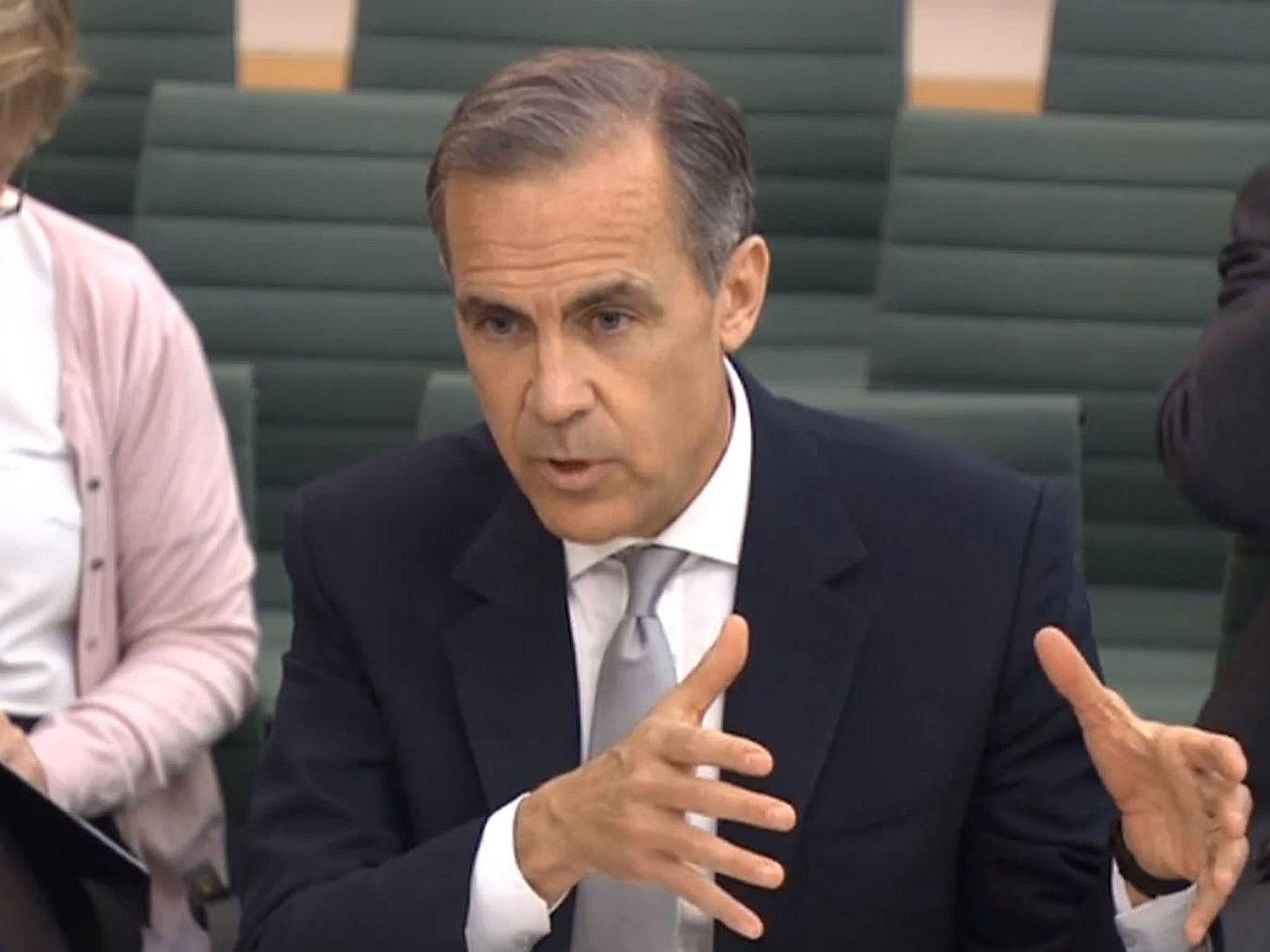Give us credit for avoiding post-Brexit vote financial crisis, says Bank of England Governor Mark Carney
Governor says Bank’s actions should be recognised, amid criticism from Brexiteers

Mark Carney has defended the Bank of England's role in the wake of the Brexit vote, suggesting the Bank helped to avert a potential financial crisis.
The Bank has been criticised by Brexiteers for acting too hastily in cutting interest rates last August and the economy's GDP growth rate has remained steady since the vote, despite widespread predictions in the City of London of a recession.
But giving evidence to the Treasury Select Committee on Tuesday, Mr Carney said the Bank's offer of large-scale liquidity to financial markets on the morning of 24 June and a cut in the capital requirements on banks in July had helped the economy avoid a potentially damaging financial crunch.
“You won’t like me for saying this, but success is an orphan on this,” he said.
“In terms of the financial-stability risks around the referendum, the bank did take some serious steps. If we hadn’t done that, there would have been macroeconomic consequences. It’s important we did. We just have to accept we will never get any credit for it.”
Sterling suffered a record intra-day slump against the dollar on the night of 23 June when it became clear that Leave was going to prevail.
There was also heavy selling on many financial markets.
The Governor's defence of the Bank's actions follows a speech last month in which he cited analysis from the Bank which showed the decision to cut interest rates by 0.25 per cent in August had effectively saved 250,000 jobs in the economy.
In his evidence Mr Carney, who was heavily criticised by Brexiteers for warning that a Leave vote could lead to a “technical recession”, did suggest that Brexit itself may ultimately be relatively smooth and that this could prompt the Bank to raise interest rates more rapidly than many in the market expect.
“There are scenarios where this process proceeds relatively smoothly to an increasingly clear end point and that will be consistent with a higher path for interest rates,” he said.
Although Mr Carney added: “There are other scenarios which would be less optimistic or less positive, which could mean that policy is on a lower path than that.”
At his last appearance before the TSC last month Mr Carney pleased Brexiteers by warning the EU that it is at greater risk than the UK if the two parties are unable to agree a financial transition phase for the City of London after Brexit in 2019.
Subscribe to Independent Premium to bookmark this article
Want to bookmark your favourite articles and stories to read or reference later? Start your Independent Premium subscription today.

Join our commenting forum
Join thought-provoking conversations, follow other Independent readers and see their replies